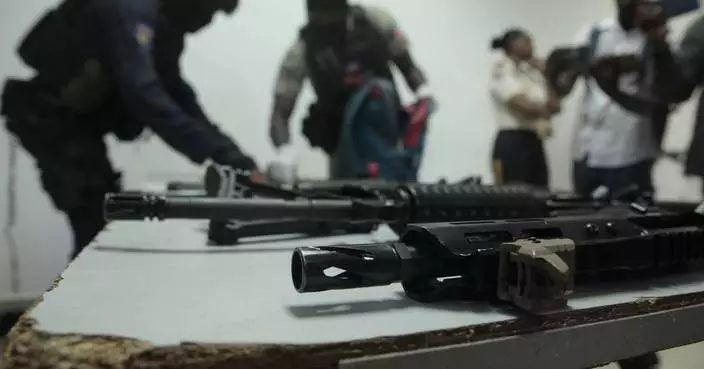The Hubei's Suizhou Museum is known as "a kingdom of bronze wares", as it collects numerous bronze pieces in various categories spanning a long period.
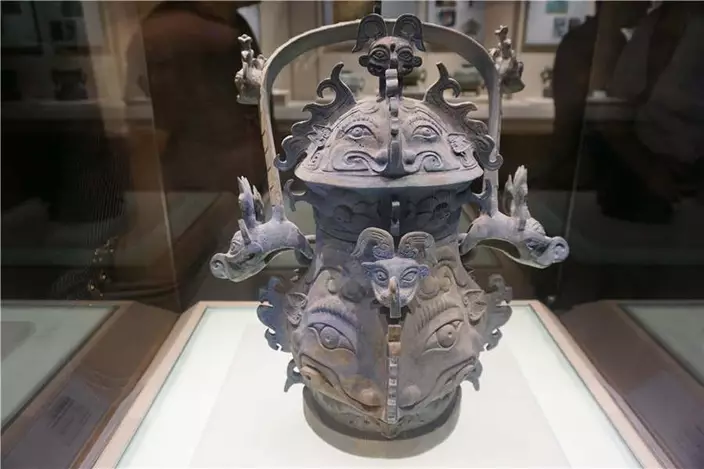
A handled you, or ancient wine vessel, from the Western Zhou Dynasty (1046 to 771 BC)(Photo/chinadaily.com.cn)
The most precious treasure of the museum is a bell set unearthed from Leigudun Tomb No. 2 in 1981. The set consists of 36 bell pieces and was made of bronze during the middle Warring States period (475-221 BC). The largest bell weighs 79.6 kilograms and the smallest 5, with the entire set weighing 590 kilograms. The ancient bells can still play music now.
Click to Gallery
A handled you, or ancient wine vessel, from the Western Zhou Dynasty (1046 to 771 BC)(Photo/chinadaily.com.cn)
A bronze yan from the Spring and Autumn Period (770 - 475 BC), which was used as a food steamer. (Photo/chinadaily.com.cn)
A stone coin mold from the Warring States Period, which was called "an ancient cash printer". (Photo/chinadaily.com.cn)
A standing pottery figurine and a genuflecting pottery figurine from the Eastern Han Dynasty (25-220). (Photo/chinadaily.com.cn)
Hou lou from the Western Han Dynasty (206 BC-25 AD), which was used as a saving pot in ancient times. (Photo/chinadaily.com.cn)
A red pottery pigsty model from the Western Han Dynasty. (Photo/chinadaily.com.cn)
A red pottery pigsty model from the Western Han Dynasty. (Photo/chinadaily.com.cn)
A stone-chime set, a kind of percussion instrument, is on display in the museum. (Photo/chinadaily.com.cn)
Gold-plated gemstone-inlaid silver floriation from Tang Dynasty (618-907). (Photo/chinadaily.com.cn)
The most precious treasure of the museum, a bell set from the Warring States Period. (Photo/chinadaily.com.cn)
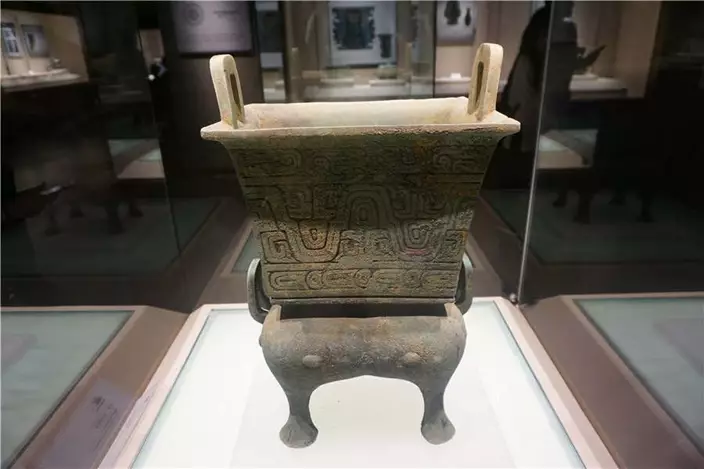
A bronze yan from the Spring and Autumn Period (770 - 475 BC), which was used as a food steamer. (Photo/chinadaily.com.cn)
Besides the bell set, representative relics unearthed from the tomb of Marquis Yi in the ancient Zeng State are also presented in the museum, demonstrating the culture and life of the mysterious kingdom.
Suizhou Museum, established in 1978, is a comprehensive museum covering relic collection, scientific research, exhibition and chime performance. Suizhou is regarded as the hometown of the ancient musical instruments, as well as the hometown of Yan Emperor in Chinese legend, also known as Shennong, or "holy farmer".
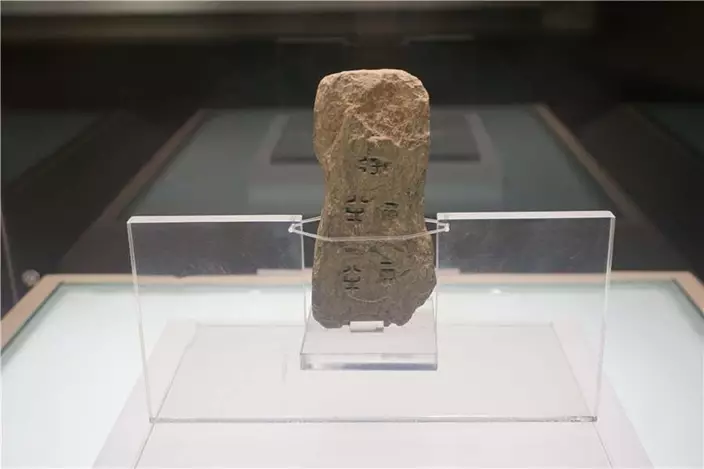
A stone coin mold from the Warring States Period, which was called "an ancient cash printer". (Photo/chinadaily.com.cn)
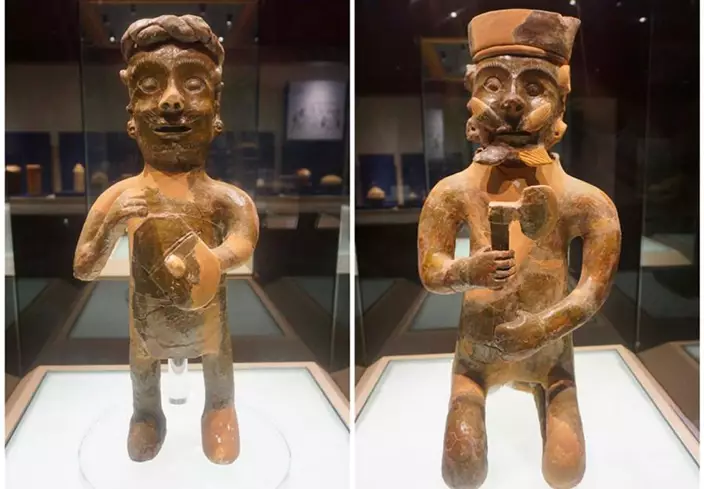
A standing pottery figurine and a genuflecting pottery figurine from the Eastern Han Dynasty (25-220). (Photo/chinadaily.com.cn)
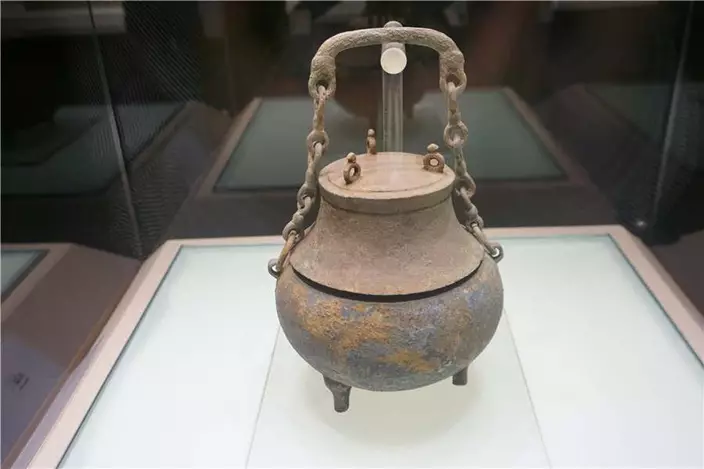
Hou lou from the Western Han Dynasty (206 BC-25 AD), which was used as a saving pot in ancient times. (Photo/chinadaily.com.cn)
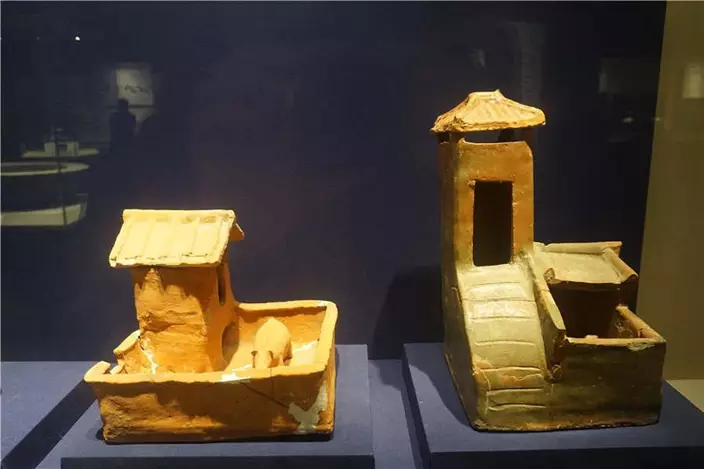
A red pottery pigsty model from the Western Han Dynasty. (Photo/chinadaily.com.cn)
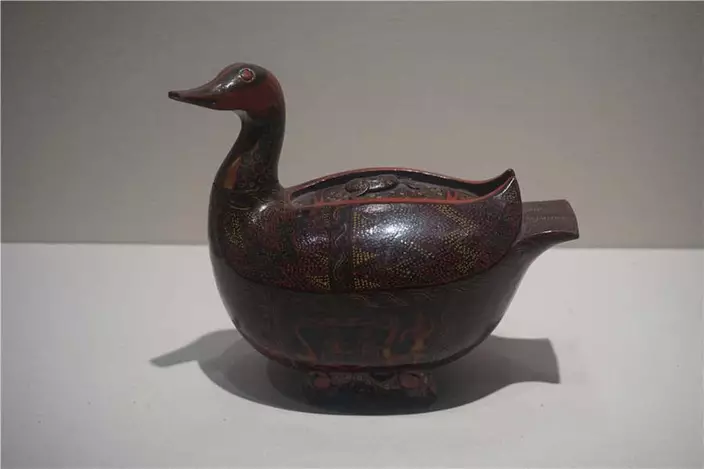
A red pottery pigsty model from the Western Han Dynasty. (Photo/chinadaily.com.cn)
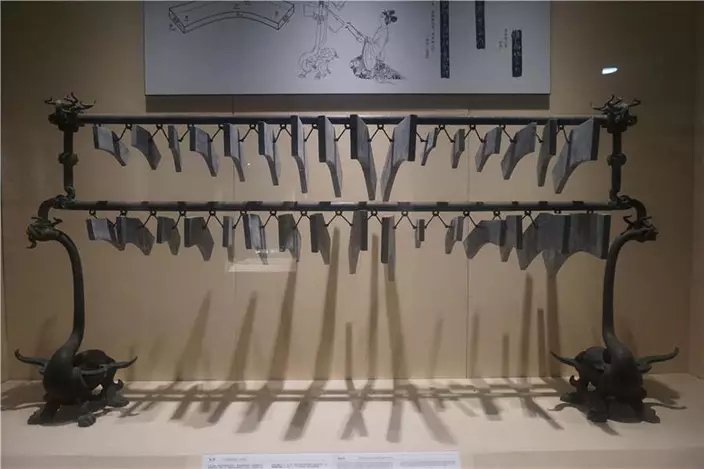
A stone-chime set, a kind of percussion instrument, is on display in the museum. (Photo/chinadaily.com.cn)
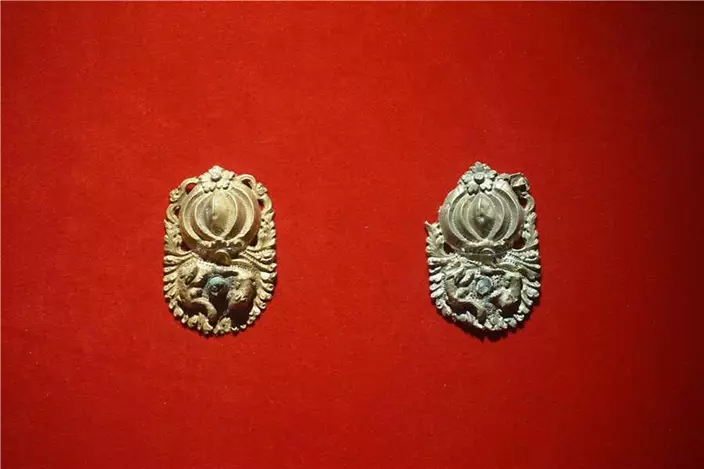
Gold-plated gemstone-inlaid silver floriation from Tang Dynasty (618-907). (Photo/chinadaily.com.cn)
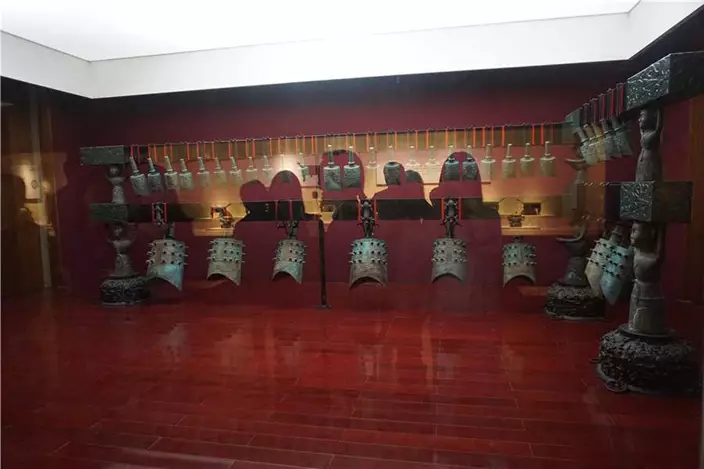
The most precious treasure of the museum, a bell set from the Warring States Period. (Photo/chinadaily.com.cn)
KHARKIV REGION, Ukraine (AP) — The four drones were designed to carry bombs, but instead the men of Ukraine's Khartia brigade pack them with food, water and handwarmers and launch them in darkness toward the front line, a 15-minute flight away.
The unit commander who goes by the callsign Kit, or “cat,” pilots the tiny uncrewed aircraft from a basement room he jokingly calls their Airbnb. Guided by the drone's night-vision camera, he drops the 10-kilogram (22-pound) packages one by one as close as he can to the position where as many as five infantrymen battle Russian forces in the late autumn chill. The delivery will hold them for two or three days.
That's about as far as Kit dares look into the future. He knows that the reelection of Donald Trump will change something in his life, but as far as he and other Ukrainian soldiers on the front are concerned, trying to figure out how is a game for politicians. For him, all that matters is the distance he measures in the meters (yards) that Russian forces advance or retreat in the front-line sector that is his responsibility.
“We are trying with all our might to destroy them and win back our territories, so that it does not go any further, so that there are no more destroyed cities and destroyed lives,” Kit said. “We need to focus on the present in our work and try to do it effectively in the here and now.”
But he cannot escape the sense of a gathering storm.
Russia is increasingly hitting the Kharkiv region with unstoppable, building-leveling glide bombs and swarms of drones and chipping away at territory there. Its troops are advancing in the Donetsk and Zaporizhzhia regions. Up to 12,000 North Korean troops have been sent to Russia's Kursk border region to help beat back Ukrainian forces there, according to U.S., South Korean and Ukrainian intelligence assessments.
Trump, who has called President Vladimir Putin “pretty smart” for invading Ukraine, has repeatedly criticized American backing of Ukraine. He characterized Ukrainian President Volodymyr Zelenskyy as “the greatest salesman on Earth” for winning U.S. aid.
Zelenskyy was among the first world leaders to publicly congratulate Trump, and said the two discussed how to end “Russian aggression against Ukraine” when they met in September.
Between now and Trump's Jan. 20 inauguration, the Biden administration has said it will send as much aid to Ukraine as possible to help hold back Russian forces and possess a strong hand in any potential peace negotiations. But Russia is pressing just as hard for an advantage in what most believe are crucial weeks to come.
Aviator, a Khartia soldier launching the supply drones, said he can only do his job and hope for the best. His attention is fixed on how many hours remain before the coming dawn, when Russian forces will be able to spot the uncrewed aircraft and shoot them down. If his mission fails, he knows that the men he calls brothers will suffer.
“You feel you’re useful, that you are in the right place, that the lives and health of our brothers depend on your work," said Aviator, who returned to Ukraine from a job in Poland to join the army. "We’re just doing our job, we don’t have time to worry about the election.”
Tolstiy, who runs a drone repair workshop not far away, knows firsthand what happens to territory captured by Russia. A former infantryman, he fought in Bakhmut and watched the city fall to Russian forces who bombed it to rubble. He confessed that sometimes, reading the news makes him want to give up. But that's simply unthinkable.
“It’s like we’re in another world here,” he said. “When you see that your comrades are injured or killed, it motivates you.”
Lori Hinnant contributed from Kyiv.
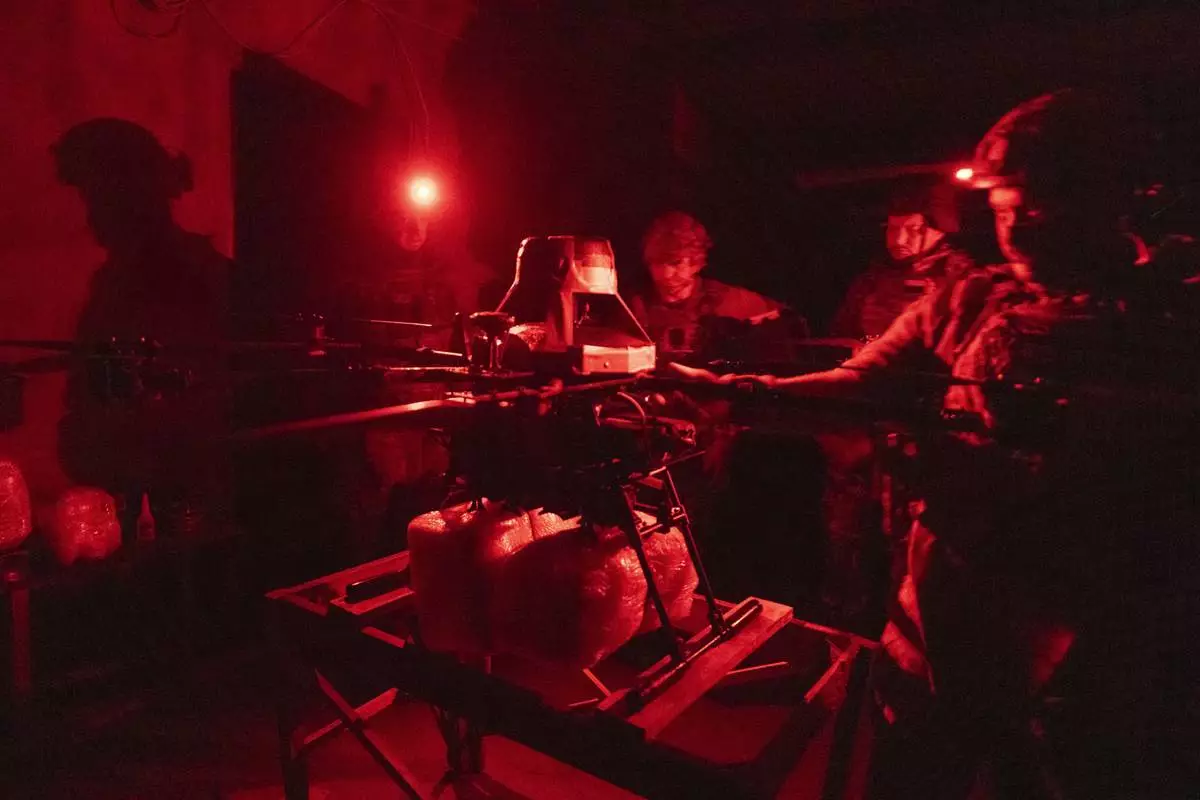
Servicemen of Ukraine's Khartia brigade pack a Vampire drone with food and water to launch toward the frontline to Ukrainian positions near Kharkiv, Ukraine, late Thursday, Nov. 7, 2024. (AP Photo/Efrem Lukatsky)
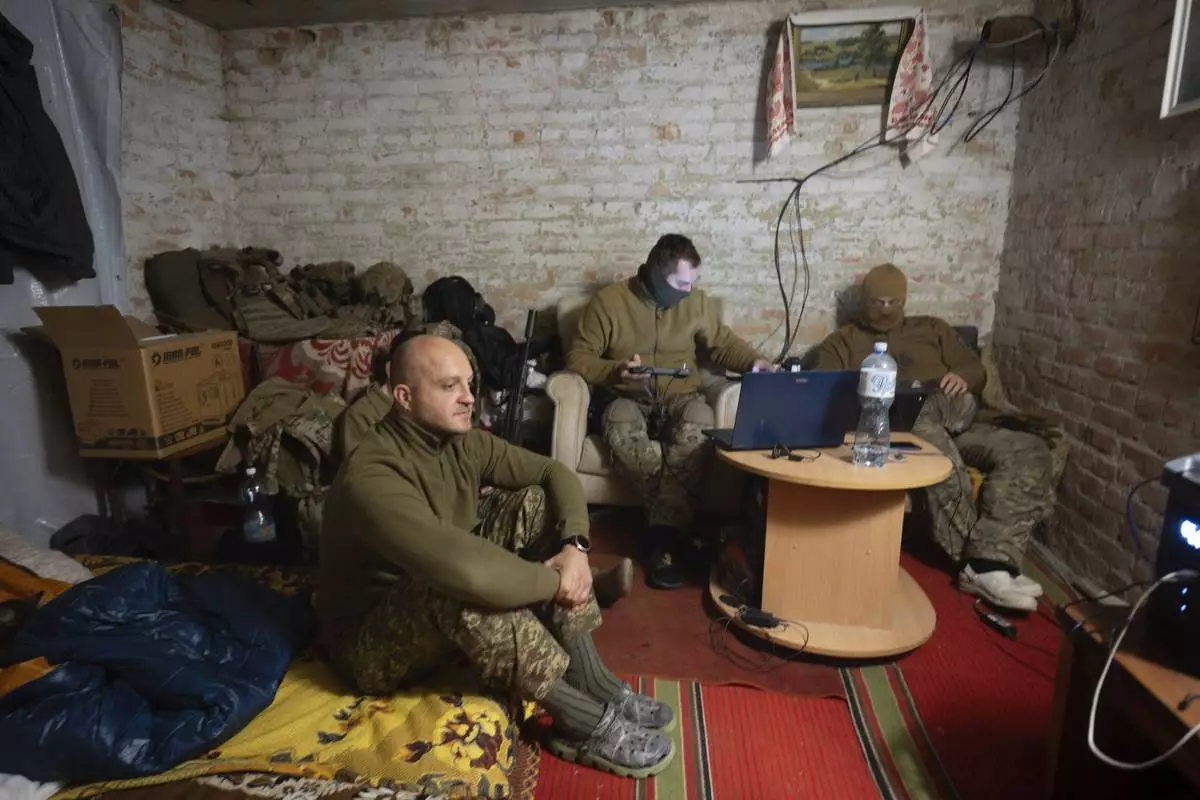
Ukraine's Khartia brigade officer, who goes by callsign Kit, left, sits while his soldiers pilot drones in a shelter on the frontline near Kharkiv, Ukraine, late Thursday, Nov. 7, 2024. (AP Photo/Efrem Lukatsky)
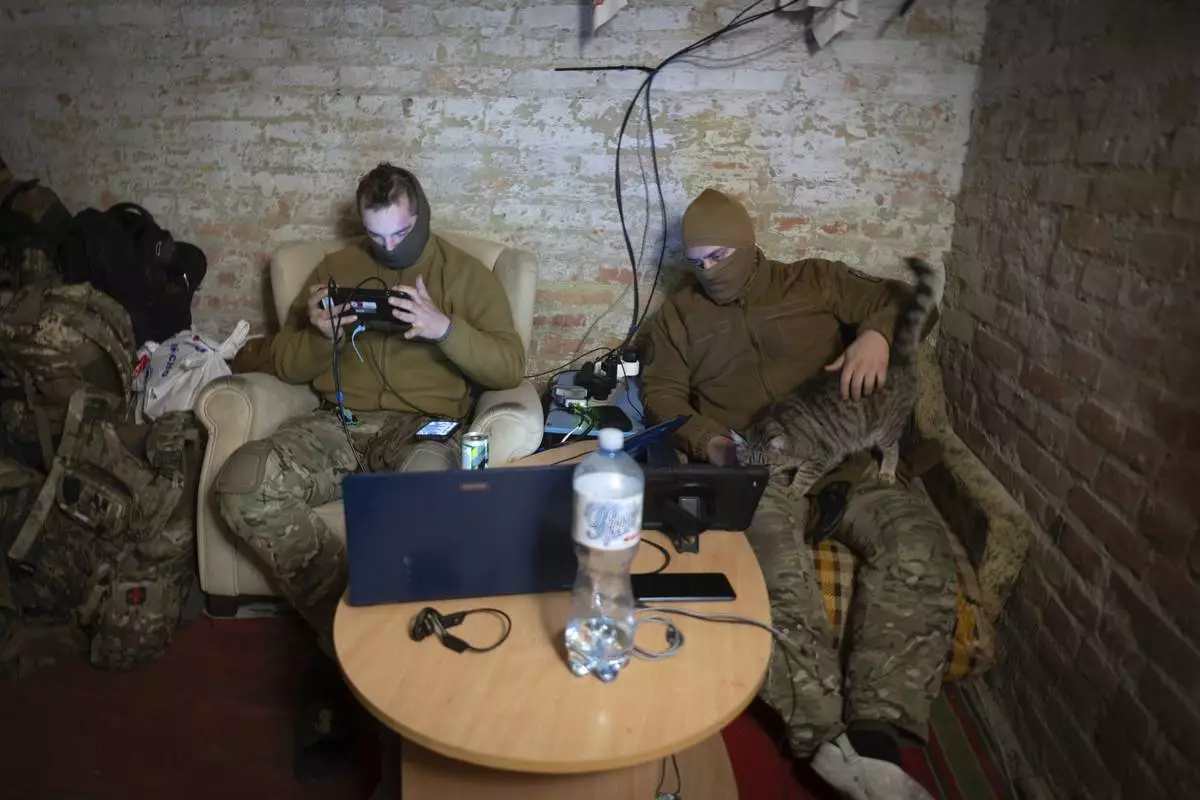
Servicemen of Ukraine's Khartia brigade pilot drones in a shelter on the frontline near Kharkiv, Ukraine, late Thursday, Nov. 7, 2024. (AP Photo/Efrem Lukatsky)
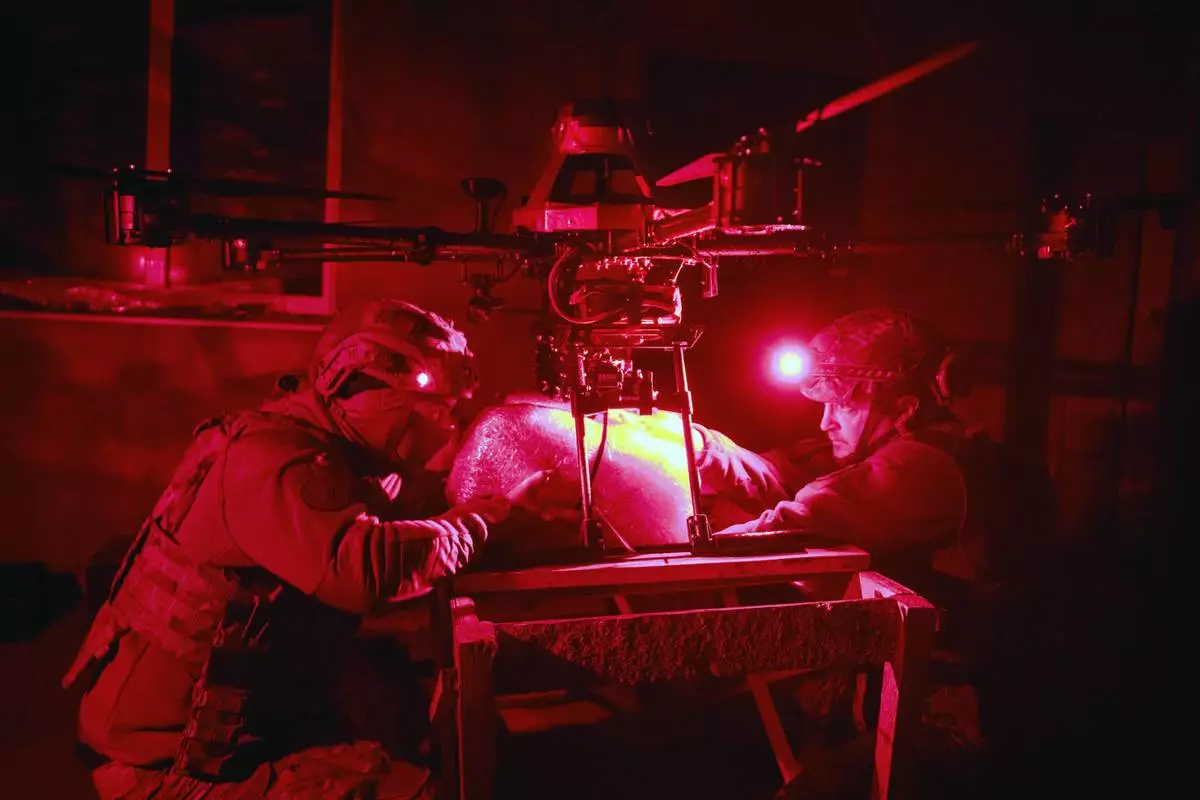
Servicemen of Ukraine's Khartia brigade pack a Vampire drone with food and water to launch toward the frontline to Ukrainian positions near Kharkiv, Ukraine, late Thursday, Nov. 7, 2024. (AP Photo/Efrem Lukatsky)
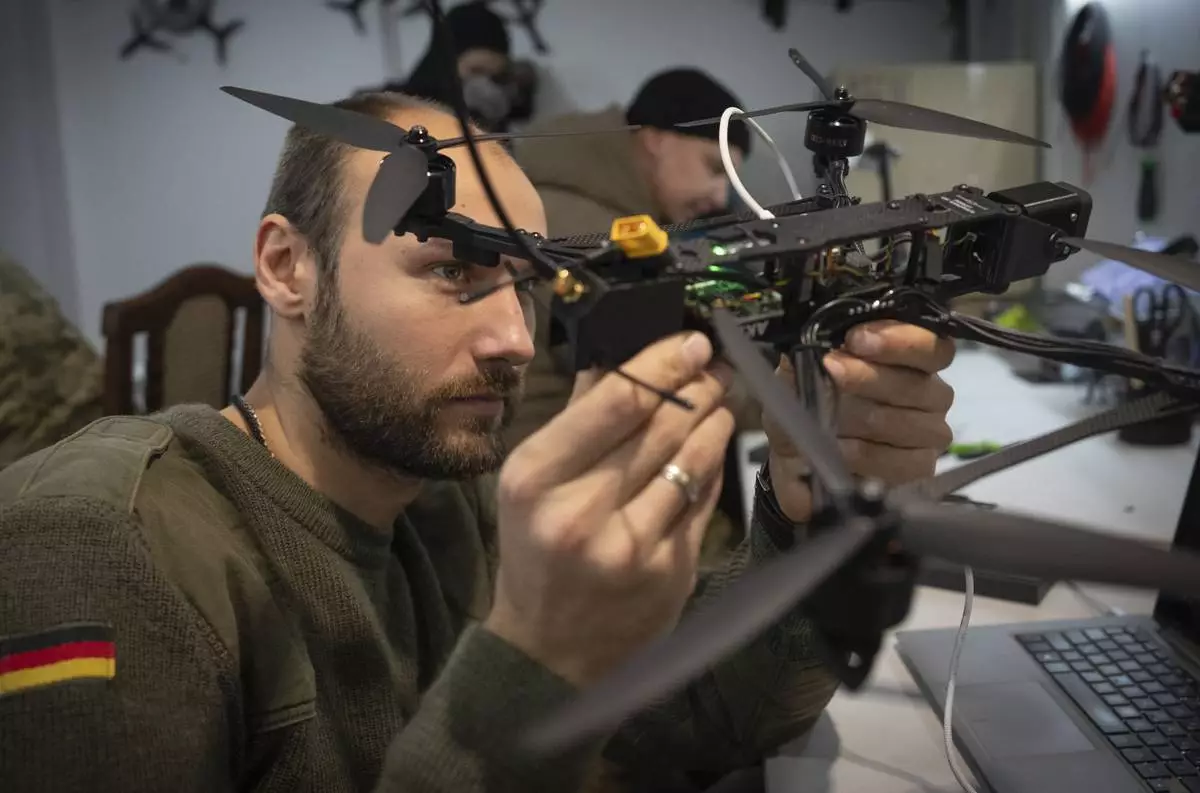
A soldier of Ukraine's Khartia brigade, callsign Tolstiy, inspects a FPV drone in a drone repair workshop close to the front line in the Kharkiv region, Ukraine, Thursday, Nov. 7, 2024. (AP Photo/Efrem Lukatsky)






















